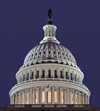
The FY 2020 budget and appropriations process is in the early stages. On Monday, March 11, the President submitted his budget request to Congress. The President’s request is his vision for government spending but does not have any force of law or compel Congress in any way. And in this case the budget is seen as pretty much dead on arrival on Capitol Hill. Nonetheless, the President proposed cutting NIH funding overall by $6 billion, including NIAID by $750 million and the Fogarty International Center by $11 million. The budget proposed cutting CDC by $1.2 billion, including global health programs by $30 million and emerging and zoonotic disease initiatives by $111 million. Within the State Department and USAID, the Administration proposed cutting global health programs by $359 million, including malaria by $75 million, NTDs by $25 million and the Global Health Security Agenda by $10 million.
ASTMH will work to ensure policymakers understand the importance of funding important CDC, NIH, USAID and DoD programs. One avenue that ASTMH and other stakeholders use to make their case on Capitol Hill is joint letters signed by a number of organizations. This month ASTMH signed onto the following:
- The annual CDC Coalition letter, which includes well over 100 stakeholder organization advocating for increased funding for CDC.
- A similar letter including hundreds of stakeholder organizations advocating for discretionary funding increases overall for the Labor-HHS-Education (LHHS) Appropriations funding bill.
- A letter promoted by the Stakeholder Forum on Antimicrobial Resistance (S-FAR) that highlighted the importance of funding initiative to overcome anti-microbial resistance.
- Another letter seeking $100 million per year ($1 billion over 10 years) toward funding a new cross-cutting initiative that will transform the public health surveillance enterprise and save lives.
In addition, ASTMH members joined the Infectious Diseases Society of America (IDSA) and Friends of the Global Fight on physician/scientist sign-on letter to appropriators asking for an increased U.S. contribution to the Global Fund for Fiscal Year 2020. More than 450 signatures were collected. Organizers saw participation numbers spike after ASTMH members were alerted about the campaign February 16 and February 22.
On March 12, Congressmen Jimmy Panetta (D-CA) and Brian Mast (R-FL) introduced a resolution supporting efforts to protect U.S. military personnel from malaria. The resolution in particular recognizes the Walter Reed Army Institute of Research (WRAIR) and its leadership in researching and protecting service members from infectious diseases such as malaria.
The Senate Appropriations Labor, Health and Human Services Subcommittee held a hearing March 14 to examine the Ebola outbreak in the Democratic Republic of the Congo as well as other emerging health threats. Witnesses included Robert Kadlec, M.D., Assistant Secretary for Preparedness and Response; Robert R. Redfield, M.D., Director for the CDC; Anthony Fauci, M.D., Director of NIAID; and R. T. Ziemer, Rear Admiral, U.S. Navy (Ret.), Acting Assistant Administrator Bureau for Democracy, Conflict, and Humanitarian Assistance, NIH.
On March 5, the Committee on Health, Education, Labor and Pensions (HELP) held a hearing on,
"Vaccines Save Lives: What Is Driving Preventable Disease Outbreaks?" The Committee heard testimony from the Washington Secretary of Health, professors of epidemiology and pediatrics, a patient advocacy group executive and the son of an anti-vaccine advocate that sought vaccinations against his parents’ wishes.
FDA Commissioner Scott Gottlieb plans to resign April 5. Gottlieb has served as FDA chief since May 2017. His resignation was a surprise and unexpected. U.S. Secretary for Health and Human Services Alex Azar announced at a subcommittee hearing that Ned Sharpless, currently Director of the National Cancer Institute, will become Acting FDA Commissioner in early April.